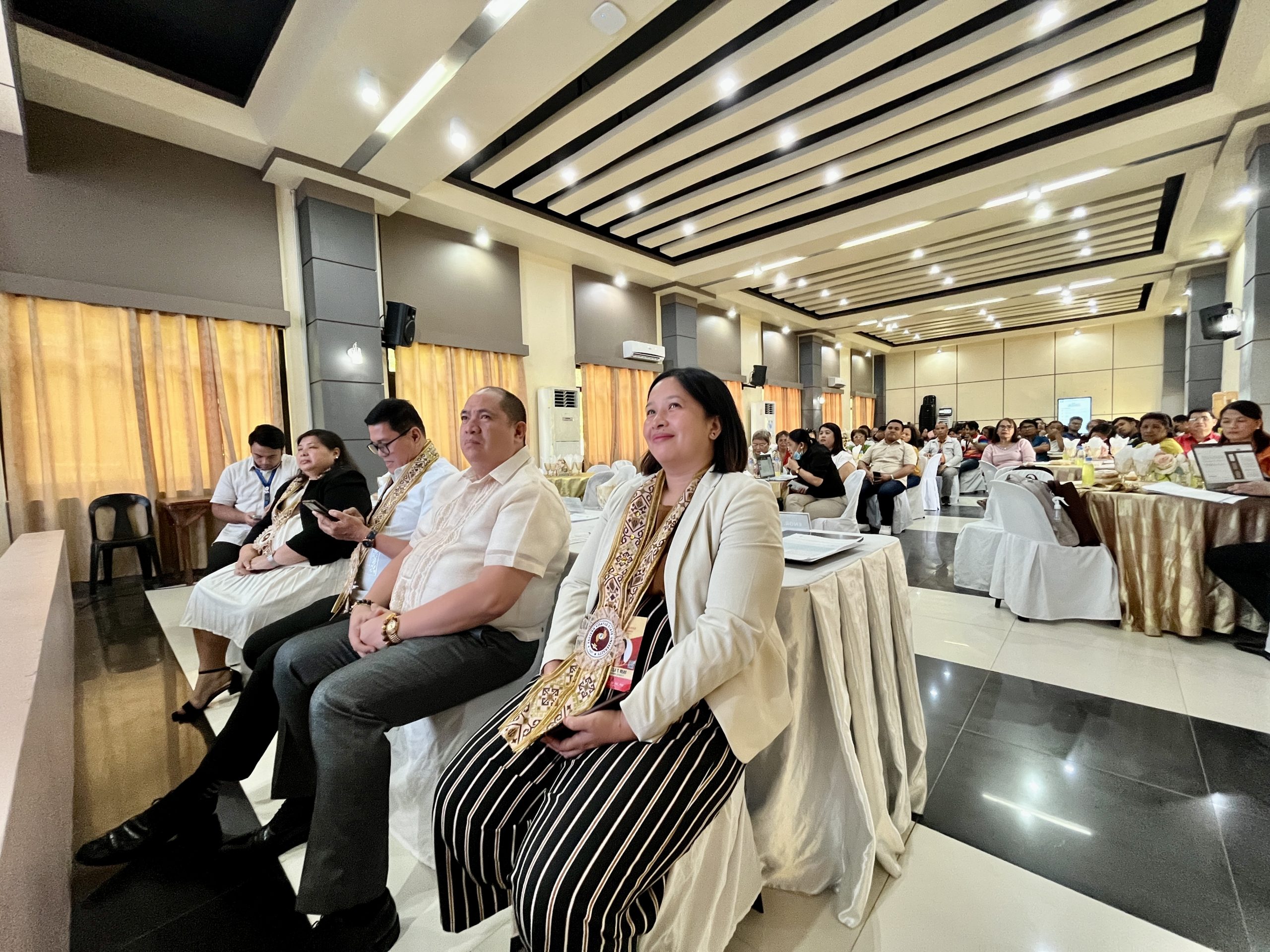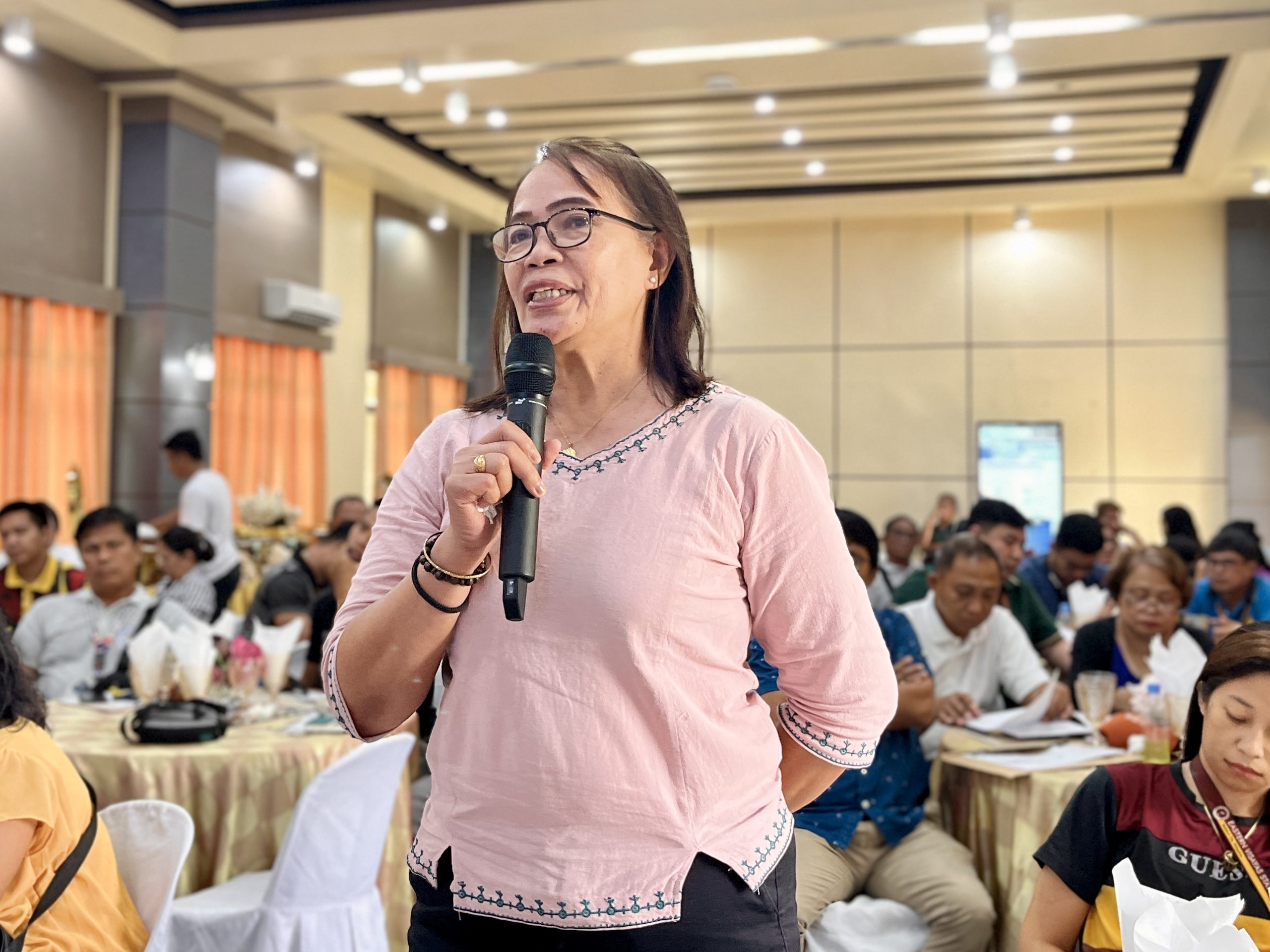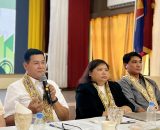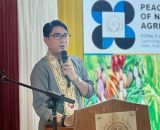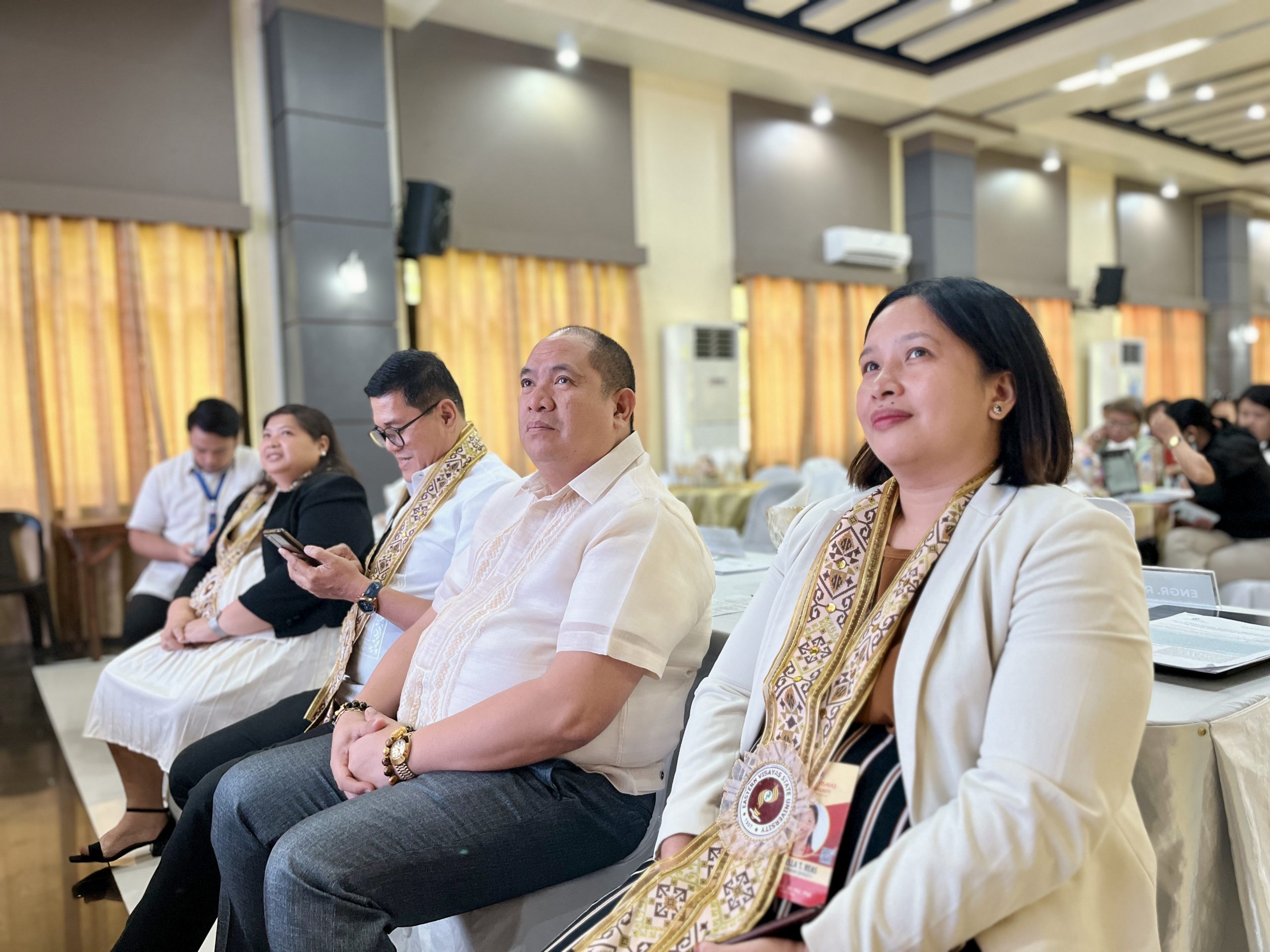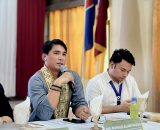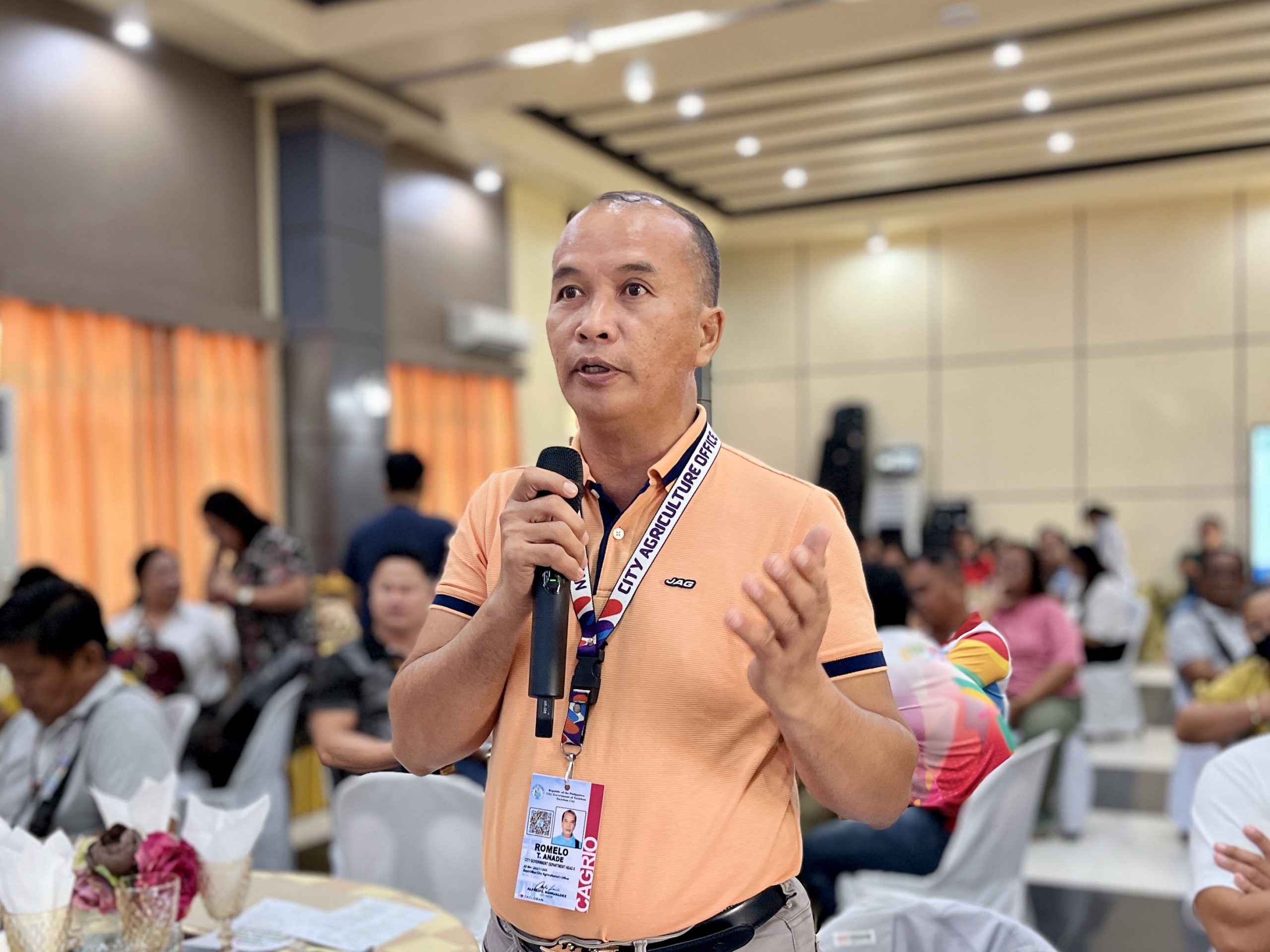The Eastern Visayas State University, in collaboration with the Department of Science and Technology (DOST), conducted a conference with the theme Empowering Agricultural Cooperatives through Science, Technology, and Innovation (STI), at the EVSU Graduate School Function Hall yesterday, August 14.
The event began with a welcome message from Prof. Fortunato de la Pena, the PHILAAST President. He delivered his message via Zoom Teleconferencing, centering on the dynamic role that science and technology play in the lives of people, especially on relevant agenda such as smart agriculture and food security. “I believe that we will take a very good chance in succeeding our goals as we know that food security is the goal of most nations,” he added, emphasizing Sustainable Development Goals (SDGs).
As the region revitalizes the agricultural landscape through the integration of technology-based equipment, Mr. Anjo Abrillo, NEDA VIII Representative, strengthened this premise through his talks on RDC initiatives to modernize agriculture in the region. He posed a question to the participants as to how we can transform the sector to generate more quality jobs and competitive products. Meanwhile, he boiled down to augmenting the long- term vision of the National Economic Development Authority (NEDA): Matatag , Maginhawa, at Panatag na Buhay para sa bawat Pilipino. This has been adopted by the Regional Development Council with the goal of establishing a resilient and prosperous Eastern Visayas where people enjoy equitable opportunities for sustainable increases in production and productivity, human development, and social and economic transformation. Alongside these parameters are pragmatic goals that the agency envisions realizing, to wit: increase production and productivity, reduce post-harvest losses, and enhance market access. Towards the culmination of his talk was his emphasis on a sound mantra that RDC fosters—steadfast in its commitment to modernize agriculture of Eastern Visayas through fund sources, policy formulation and regulation, among others.
Engr. Roxcella Reas, Education Program Specialist, introduced the Vertical Farming via hydrophonic system as a possible solution for the lack of arable land for crop production and promotion of resiliency and sustainability. She discussed viable prototypes that this system could offer through the launching of the Intelligent Green Box (IGB) in the university and with its partner industry—La Granja farm. As they aim for the development of a lower-cost prototype, she introduced the Eco-Vertibox project, a customized version of IGB, using locally available materials. This innovation enthused the participants as it promises potential in reconfiguring the agricultural landscape and farming industry within the region. Engr. Reas also adds that this project was made possible through technical tutelage of Dr. Joel Cuello, Professor of Biosystems Engineering at the University of Arizona.
Meanwhile, Dr. Loucel Cui of the University of the Philippines-Los Baños, advanced her team’s knowledge transfer by incorporating smart agriculture in the agronomic sector. She introduced climate- smart agriculture through a digital application named Smarter Approaches to Reinvigorate Agriculture as an Industry in the Philippines (SARAI). The main thrust of the project is to reduce climate change by producing agricultural stakeholders anchored on sustainability through multilevel partnership from partner community to national agency. SARAI deploys science-based crop technology, institutionalizes the integrated crop monitoring and forecasting system, generates crop advisories, and develops capacities among partners.
The series of discussions culminated alongside the talk of Mr. Ronald Alan Pinzon, Head of Business Development Section from the Philippine Nuclear Research Institute. The goal of the agency is to establish peaceful and productive applications of nuclear energy on food and agriculture. For one, he highlighted the bounty-producer Carrageenan Plant Growth Promoter (CPGP), which not only increases harvest, but strengthens crops, making them typhoon resistant. Similarly, it strengthens crops that are firmly attached to the panicles and enhances presence of natural and friendly insects. These topics piqued the interests of the farmers as this type of technology can exponentially increase crop production.
As the talks ended, Dr. Dennis C. de Paz, the University President, gave affirmations through his message of support in advancing the agricultural sector, affirming that there is a need for the optimization of machine learning technology. “There is a need to intensify the communities to make it Science and Technology-based human capital, to make science work for change, and to make science adjust to the evolving times,” de Paz underscored.
Dr. Analyn C. Espano, Vice President for Research & Development, and Extension Services, who is at the forefront of catalyzing change through science, technology, and innovation, lauded the esteemed guest speakers for their substantial contributions. Further, she made an overarching synthesis vis-à-vis the discussions presented. “All the presentations are articulating smart agriculture; Farmers have to innovate, adapt technologies, and mitigate effects of climate change by being open to new developments and new learnings,” Dr Españo stated.
This forum was attended by EVSU key officials led by Dr. Dennis C. de Paz, DOST key personnel under the supervision of the Dr. John Glenn D. Ocaña, DOST VIII’s newly appointed Regional Director, policy makers, LGUs, Provincial Agriculture Office, Municipal Agriculturists and Technologists, Cooperatives Operators, farmers, and other stakeholders.
Written by: J Genobiagon | UMDC
Edited by: JS Beleña | UMDC




